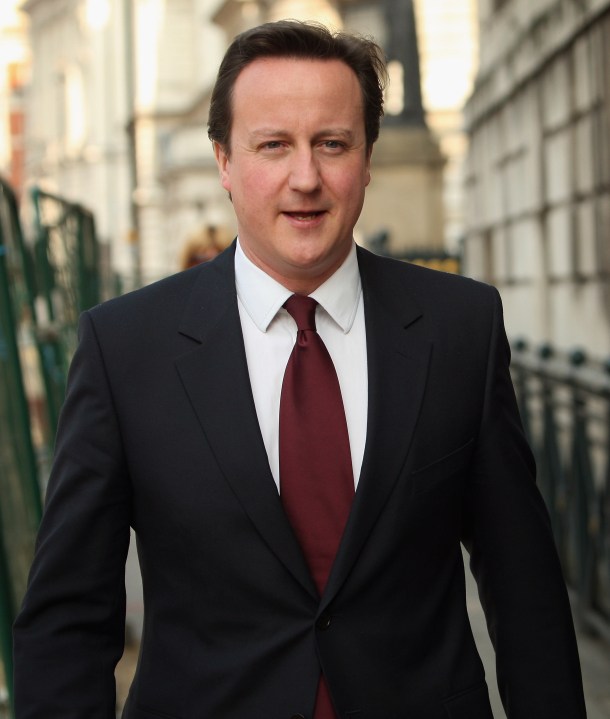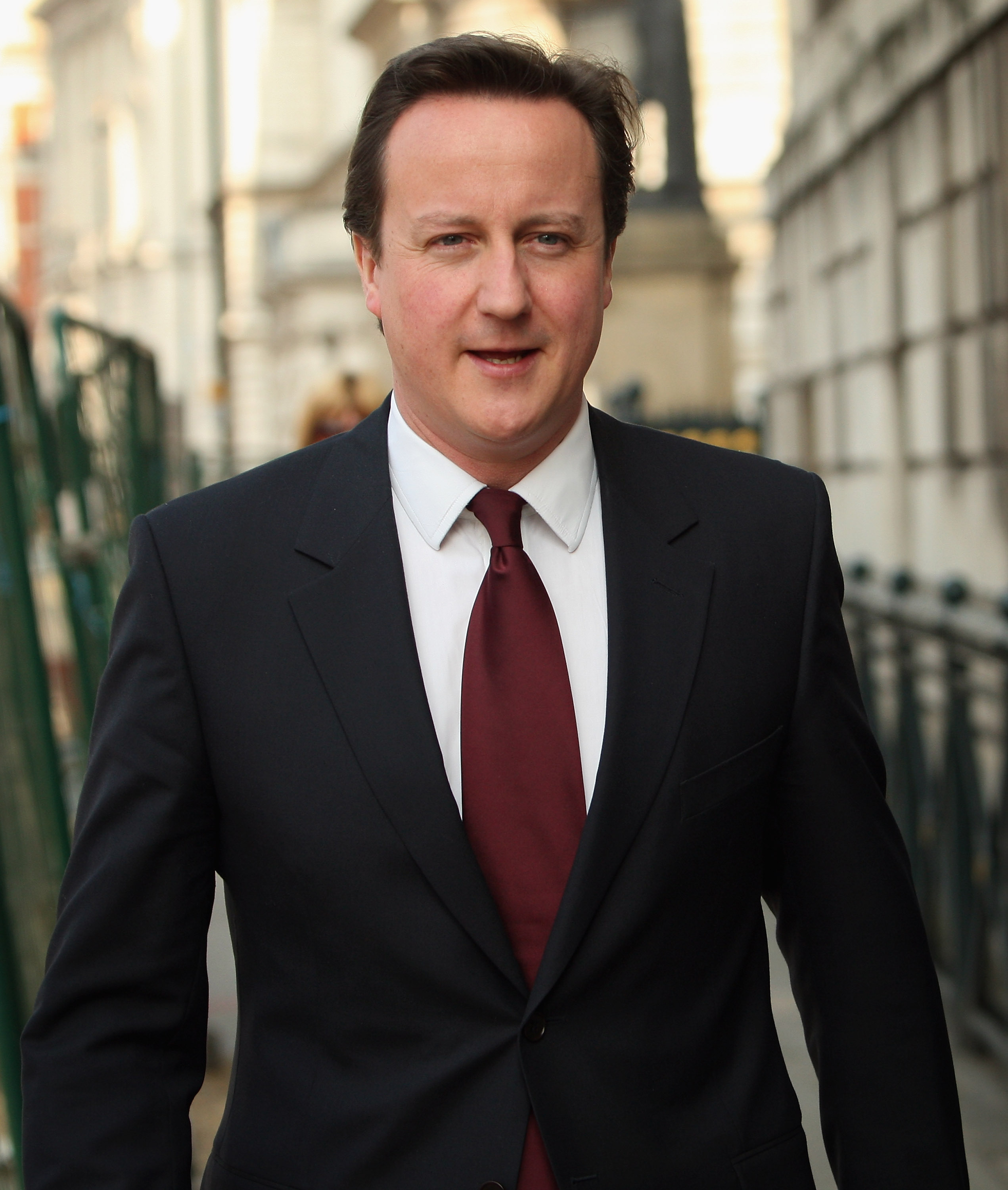 For most of the 15 years, an orthodoxy has governed Westminster: that cuts are bad, and that higher state spending – sorry, “investment” – is good. While the Tories stayed mute, Gordon Brown embarked on the biggest explosion of state spending in the developed world. As I say in my column today, only the oddballs say that state spending is too high: Lord Tebbit, John Redwood and 72% of the British public. This last figure is from a poll conducted by PoliticsHome – which is moving into opinion polling, but of a specific type. It has a new technique, deliberative polling, where a representative group of 1,400 people are chosen. You ask them the question, then present them with the arguments, then ask them again. The result is clear: 72 per cent think that state spending is too high. PoliticsHome has the full analysis here, my political column is here. But here are ten reasons to cut spending.
For most of the 15 years, an orthodoxy has governed Westminster: that cuts are bad, and that higher state spending – sorry, “investment” – is good. While the Tories stayed mute, Gordon Brown embarked on the biggest explosion of state spending in the developed world. As I say in my column today, only the oddballs say that state spending is too high: Lord Tebbit, John Redwood and 72% of the British public. This last figure is from a poll conducted by PoliticsHome – which is moving into opinion polling, but of a specific type. It has a new technique, deliberative polling, where a representative group of 1,400 people are chosen. You ask them the question, then present them with the arguments, then ask them again. The result is clear: 72 per cent think that state spending is too high. PoliticsHome has the full analysis here, my political column is here. But here are ten reasons to cut spending.
1. The public wants cuts. One of Britain’s many blessings is having a public way smarter than those who seek to rule them. If spending can be more than doubled with little or not effect on services (some, like education, have grown worse) why should they believe that cuts should be so damaging? The PoliticsHome/Spectator poll has more.
2. The “stimulus” isn’t working. Brown and the neo-Keynsians claim extra state spending was vital in last October to stem the expected jobs decline. Then, claimant unemployment at the end of this year was expected to be 1.1m. Now, its expected to be 1.9m. The outlook has grown much worse, not better. The only independent analysis of the stimulus (commissioned by The Spectator) shows it will be a net destroyer of jobs. The theory doesn’t work.
3. There is a clear moral case for cuts. If we’re not prepared to pay taxes to fund spending, why saddle our children with the bill? Look at the graph at the bottom of this post: the dotted line is UK tax receipts, the red line is UK spending. The gulf between them is the amount we’re leaving for the next generation to pay. There is no moral defence for this.
4. Without cuts, Britain will be at permanent risk of an IMF bailout. George Osborne is right to say there is a risk (albeit a small one) that the UK government may find no one willing to buy its IOU notes – leading us to an IMF bailout. But that risk won’t go away after polling day. If the IMF guillotine falls in a Tory government, it will be Osborne’s head in the basket. And a Tory government that will be judged to have failed.
5. David Cameron needs cuts, to make his rhetoric true. “It’s morally irresponsible to rack up more debts for our children to pay off,” he said in Cardiff last weekend– yet without cuts this is precisely what he’d do (details here.) Even if he freezes state spending, that baby in the Tory posters – owing £17,000 today – will owe £24,000 by the end of the first Tory term. Labour would be richly entitled to produce posters saying so (a bit like this one) and conclude that Cameron either deceived the public, or failed in his stated aim.
6. A “third way” of ‘slower spending growth’ doesn’t exist anymore. For years, the Tory hope was on “sharing the proceeds of growth” – ie, growing sending at a smaller rate than the economy, letting tax receipts rise at a higher rate and then paying down debt (or giving a rebate). Yet from 2010 to 2014 there will be no growth to speak of. No proceeds to share. There is a binary choice: Brown’s spending plans, or cuts. Rhetorically, this doesn’t suit the Cameroons one bit. But this is, alas, the economic realpolitik.
7. The Tories can drop their ‘no-cuts’ pledge with relative impunity. Brown is accusing them of “deep and painful cuts” anyway – he has been since 1994. No one else was really noticed Cameron’s references to “growth”. So the word can be dropped, and probably no one will notice.
8. There isn’t much time left. Remember when Lynton Crosby came in for the 2005 campaign? He had 18 months – and even then it was argued that it was too late to introduce a radical idea. If the Tories do want to prepare the public for cuts – and their rationale for doing so – they’d best get busy.
9. Money is best placed in the hands of the people who earn it. Brown has done us at least this favour: tested to destruction the idea that higher spending is the solution to public services. It is time for the Tories to state their basic credo: that, unlike Labour, they admire and trust the public and believe they will spend their money more wisely, creating a just and fairer society. It’s time to declare intellectual independence from Labour, and show there is principle behind Tory economic policy.
10. The alternative to cuts is the Europeanisation of the UK economy. Once Brown had made “cuts” a four-letter word, ratcheting up state spending was a one-way process. And my, how he ran. When he came off Tory spending plans, we spent less than the average developed (ie, OECD) country. Now we’re spending more than the Eurozone. Say what you like about Brown, but he is no failure in this regard. This was his mission, and it was a success – albeit one that now threatens to bankrupt the country. But even Brown didn’t dare raise the taxes to pay for it (see dotted purple line). This, irony of ironies, will be Cameron’s job. Brown’s hope is that the Tories stick to a “no cuts” policy and therefore jack up taxes and complete his mission: to saddle Britain with Euro-sized government. Without spending cuts, the Tories would simply be completing Brown’s life’s work. And we’d all be the poorer for it.









Comments